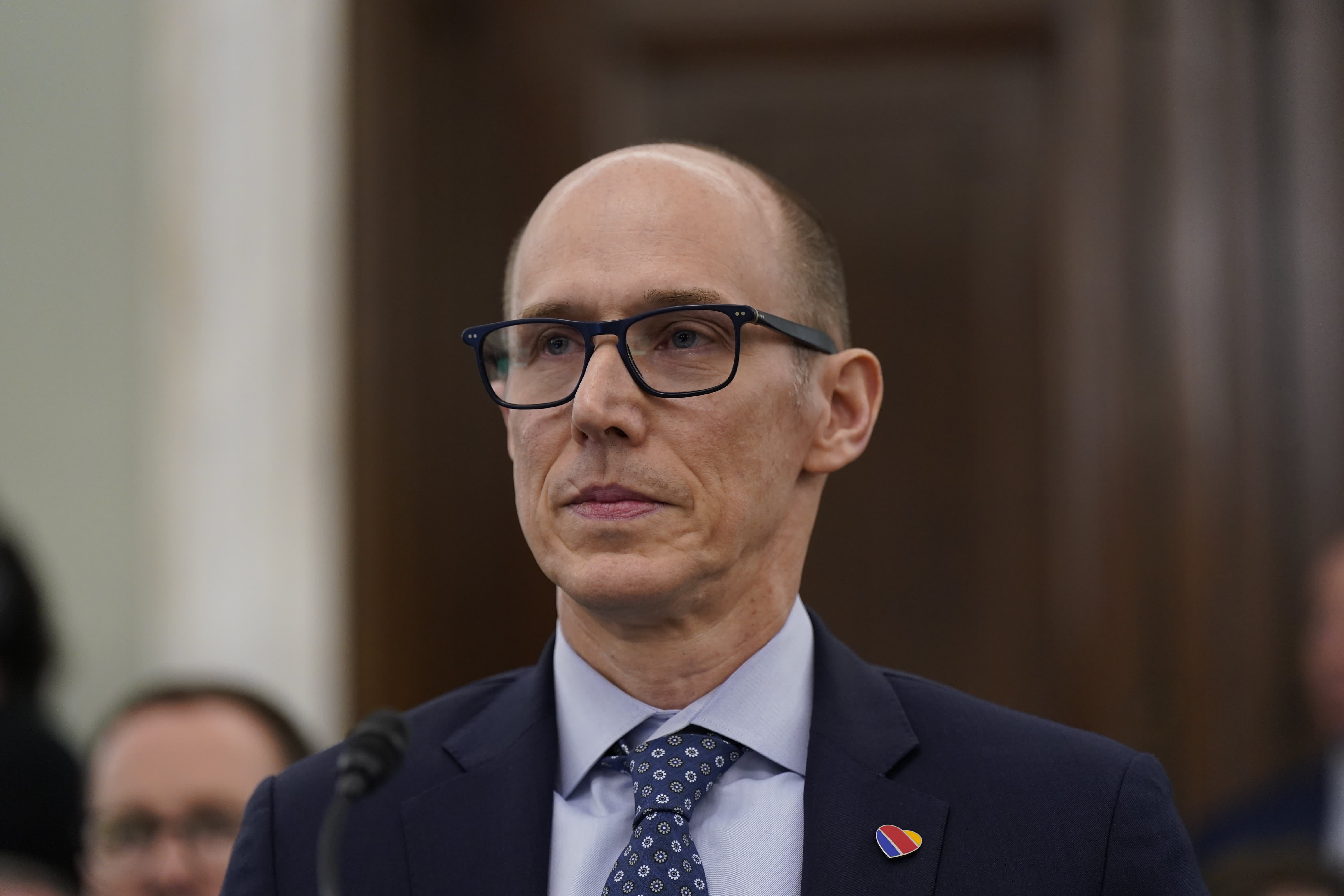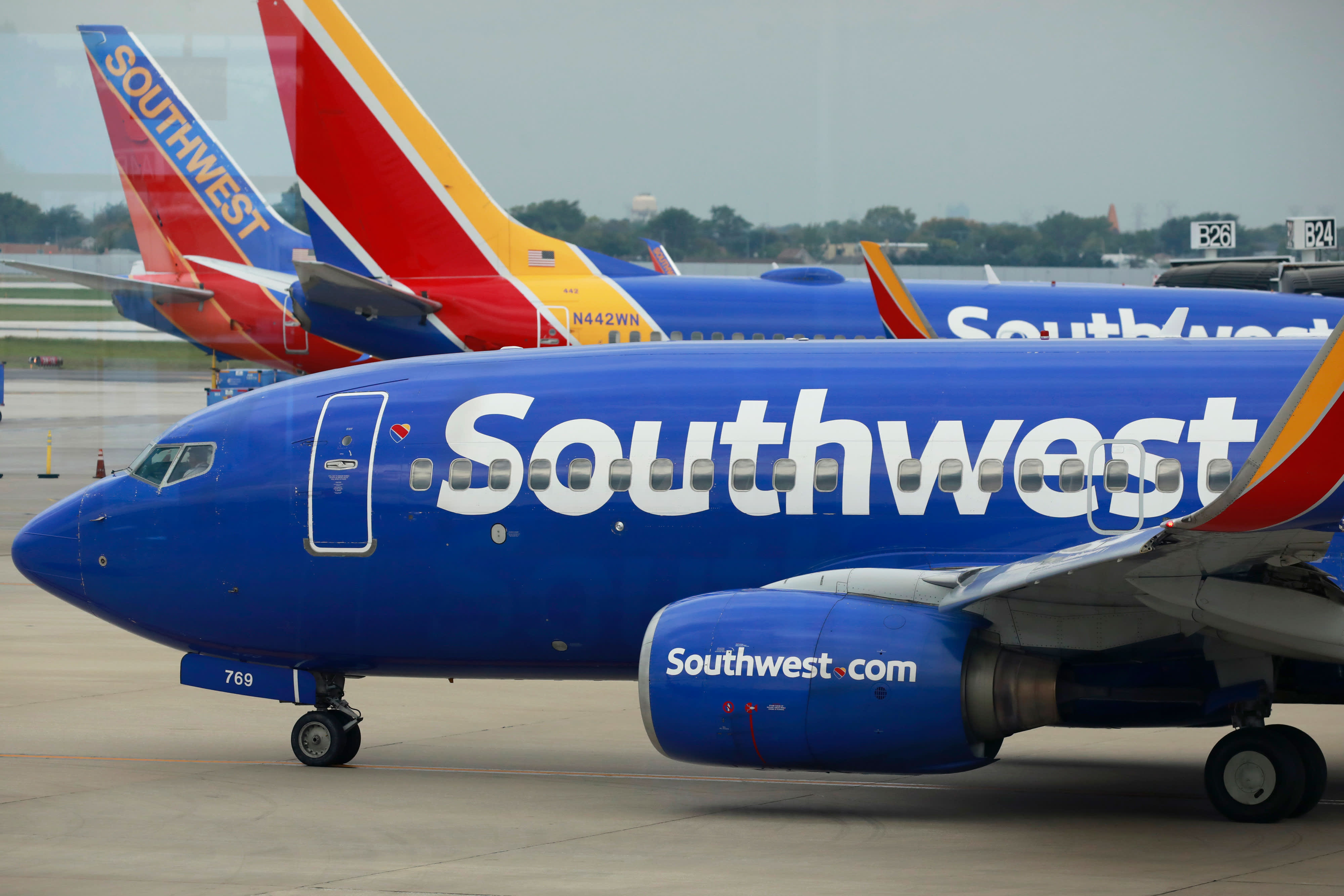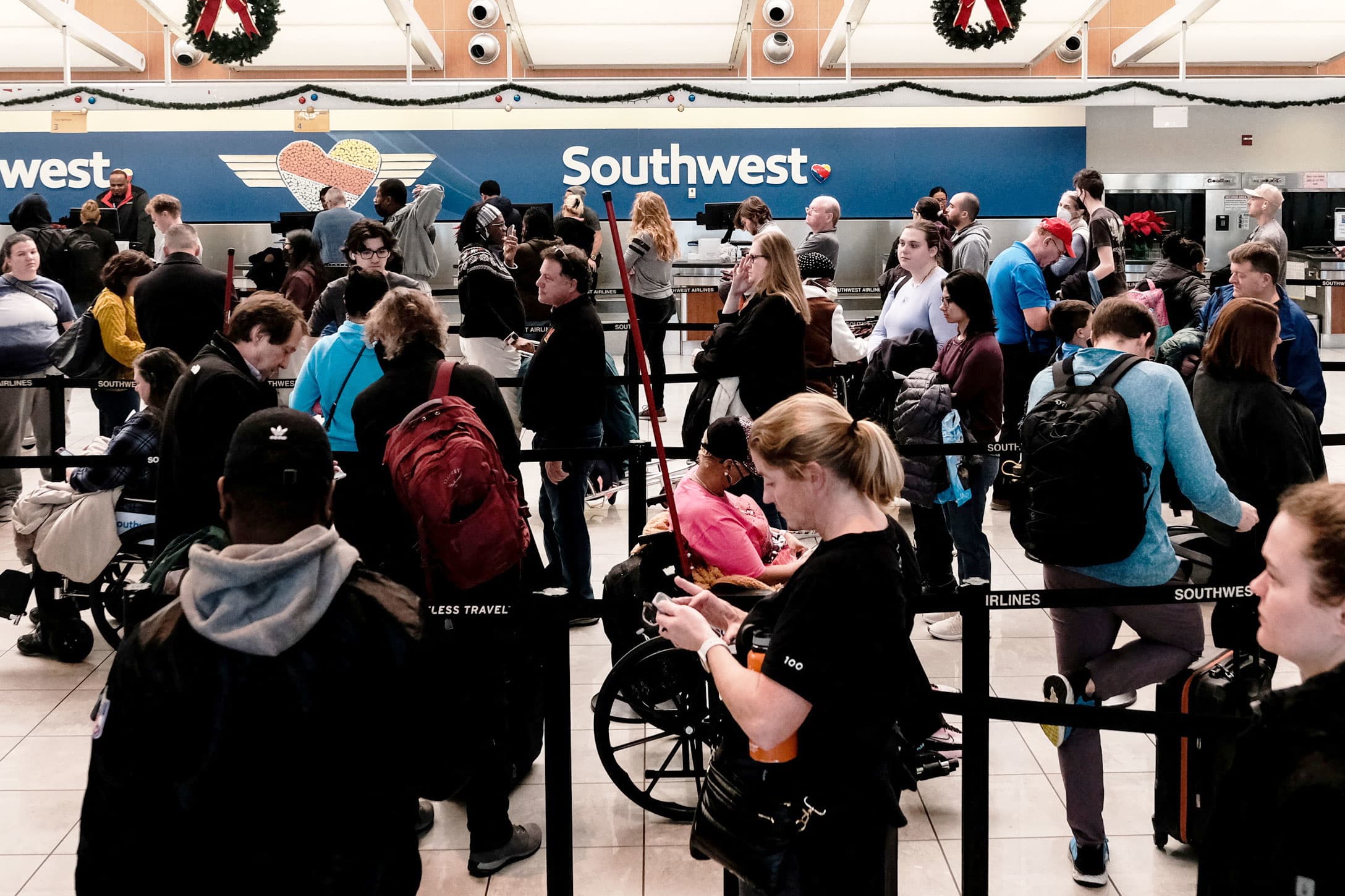What to Know
- Southwest canceled nearly 17,000 flights over the December holidays.
- A Southwest executive said Thursday the airline is upgrading software this week to better respond to disruptions such as winter storms.
- The president of the pilots' union at Southwest says Congress needs to hold the airline accountable, and give firm dates for how it will fix a crew-scheduling system that was overwhelmed in December.
A senior executive of Southwest Airlines apologized to a Senate committee Thursday for a December meltdown and said the airline is upgrading software to help fix its inability to reassign crews after the winter storm.
The president of the Southwest pilots’ union told senators that airline leaders ignored calls to improve technology for years, then botched the recovery from the storm — losing track of employees and operating more than 500 empty flights while passengers were stuck on the ground over the holidays.
The comments came during a hearing of the Senate Commerce Committee, which focused on the Southwest breakdown as it began to probe disruptions that affect millions of air travelers every year.
Get top local stories in DFW delivered to you every morning. >Sign up for NBC DFW's News Headlines newsletter.
“We know this won’t be the last snowstorm to hit this country. So let’s figure why Southwest’s operations collapsed and what needs to change so this never happens again on Southwest or any other airline,” said the committee chair, Maria Cantwell, D-Wash.
Democrats on the committee were frustrated that Southwest didn’t respond to warnings from its unions that it needed to improve its crew-scheduling system long before December’s debacle in which the airline canceled nearly 17,000 flights, stranding more than 2 million customers.
“You were warned,” Sen. Edward Markey, D-Mass., told Southwest's chief operating officer, Andrew Watterson. “That mismanagement absolutely led to real pain, real harm for families.”
Cantwell said she heard from constituents who got no help or instructions from Southwest after their flights were canceled.
“They were on their own, all of them,” she said.
Republicans and a lobbyist for the airline industry used the hearing to argue against proposals — including ones that President Joe Biden promoted this week in his state of the union speech — to impose new regulations on airlines, such as expanding compensation for delayed flights and limiting airline fees.
Republicans said such measures would cause fares to rise.
“Instead of rushing to regulate prices and how many drink coupons you get, the Biden Department of Transportation should instead let the flying public vote with their feet,” said Sen. Ted Cruz, R-Texas.
Southwest and other airlines were hit by a winter storm on Dec. 21, but Southwest failed to recover when other carriers did. The breakdown has cost the airline more than $1 billion.
Watterson said Southwest had a plan, but the storm was worse than expected. Southwest struggled with deicing equipment and jet bridges in Denver and Chicago, eventually canceling most flights at those airports, logistics problems which rippled nationwide.
By Dec. 24, as the storm moved east, Southwest’s ability to reschedule crews was in tatters, and pilots and flight attendants were stranded just like the passengers. It took another week for the airline to recover.
“Let me be clear — we messed up,” Watterson told the senators.
The executive said the Dallas-based airline has provided refunds and processed nearly all the claims for reimbursement of out-of-pocket costs that it has received.
Watterson said that starting Friday, Southwest will upgrade software that suggests how to reassign crews to flights after disruptions. That software, from General Electric, was overwhelmed with the number of changes needed during the storm. He said the airline has also increased the ratio of employees to planes.
Cantwell pressed Watterson on whether Southwest had planned for a worst-case storm. He said it planned by estimating how many planes could be deiced, but those calculations “proved to be incorrect for this storm.”
Southwest led all U.S. airlines in canceled flights last year, accounting for more than 40,000 of the total 210,000 cancellations, according to tracking service FlightAware.com.
Casey Murray, president of the Southwest Airlines Pilots Association, said the airline struggles to deal with any disruptions, even minor ones. He said the December debacle was avoidable — unions had warned company leaders about problems with crew scheduling many times, including after a smaller crisis in October 2021 — but the airline failed to invest enough in better technology.
“Managers’ overconfidence in their planning and a systemic failure to provide modern tools to employees doomed SWA’s recovery before the first snowflake hit the ground,” he said.
During the crisis, Murray said, pilots and flight attendants who tried to call headquarters to get assignments spent hours on hold.
Murray said Southwest’s current leaders don’t listen to frontline workers and have drifted away from the airline’s longstanding employee-centered culture. He pointed to $8.8 million in stock options that the company disclosed last week for seven top executives.
Watterson stood in for CEO Robert Jordan, who had a scheduling conflict, according to the airline. That did not go over well.
“Your CEO didn’t want to be here,” Cantwell told Watterson. In a reference to the airline’s co-founder, she added, “I definitely think Herb Kelleher would be here if he was the CEO.”




